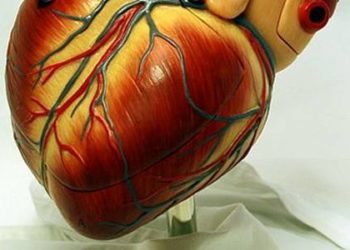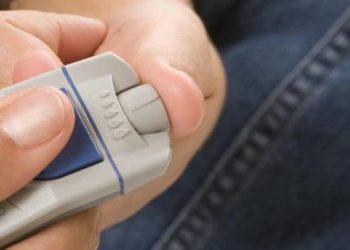Tight glycemic control common in ICUs despite evidence-based literature
1. Publication of the Leuven I trial resulted in increased tight glycemic control and hypoglycemia in critically ill adults.
2. The publication of the NICE-SUGAR trial, while having an initial impact on decreasing hypoglycemia, was not associated with decreased tight glycemic control in critically ill adults.
Evidence Rating Level: 2 (Good)
Study Rundown: Despite initial studies showing decreased mortality, maintaining tight glycemic control in the critically ill has been shown on numerous occasions to be harmful. However, it is unclear how these studies have impacted clinical practice. This study aimed to evaluate glycemic control in critically ill patients before and after the publication of major clinical trials that initially suggested tighter glycemic control lowered mortality (Leuven I) but then subsequently suggested that tighter glycemic control increased mortality (NICE-SUGAR).
After the publication of Leuven I, the proportion of patients with tight glycemic control and hypoglycemia increased significantly. There was also a complementary decrease in the proportion of patients with hyperglycemia. The publication of NICE-SUGAR was associated with an immediate reduction in the proportion of patients with hypoglycemia, which remained stable through the study period, but no statistically significant difference in the proportion of patients with tight control or hyperglycemia over time. Strengths of this study include using a robust prospectively collected clinical database for information with long study period and large population. Limitations of this study include using a surrogate marker (i.e., daily glucose levels) for actual IV insulin use measurements, and also not using a control dummy-variable for comparison.
Click to read the study in JAMA Internal Medicine
Relevant Reading: Intensive versus conventional glucose control in critically ill patients
In-Depth [interrupted time-series]: This interrupted-time series analysis used information from the Acute Physiology and Chronic Health Evaluation (APACHE) database to examine the glycemic control of 377,861 adult ICU patients from 113 ICUs in 56 hospitals across the United States through 2001 to 2012. The main exposures were the date of publication of Leuven I (November 8, 2001) and NICE-SUGAR (March 24, 2009). Blood glucose data was detailed in the APACHE database and its control was defined as either tight (glucose levels 80-110mg/dL; 4.4-6.1 mmol/L), hypoglycemia (<70 mg/dL; <3.9 mmol/L), or hyperglycemia (≥ 180 mg/dL; ≥10 mmol/L). Influence of the two articles on glucose control was analyzed using mixed-effects segmented linear regression.
At study inception, the proportion of patients with tight glycemic control, hypoglycemia and hyperglycemia were 17.2%, 3.0%, and 40.2%, respectively. After the publication of Leuven I, there were significant increases overtime of the relative proportion of patients with tight glycemic control (1.7% per quarter, 95%CI 1.2%-2.3%; p < 0.001) and hypoglycemia (2.5% per quarter, 95%CI 1.9%-3.2%; p < 0.001). There were also complementary decreases in patients with hyperglycemia (0.6% per quarter, 95%CI 0.4%-0.9%; p < 0.001). However, following the publication of NICE-SUGAR, despite an immediate reduction in hypoglycemia (22.4% 95%CI 13.2%-30.1%, p < 0.001), there were no changes in the proportion of patients with tight control or hyperglycemia. At the end of the study, 27.5% (95%CI 26.5%-28.5%) of patients had tight control, 5.2% (95%CI 4.6%-5.7%) had hypoglycemia and 33.0% (95%CI 31.9%-34.1%) had hyperglycemia.
Image: PD
©2015 2 Minute Medicine, Inc. All rights reserved. No works may be reproduced without expressed written consent from 2 Minute Medicine, Inc. Inquire about licensing here. No article should be construed as medical advice and is not intended as such by the authors or by 2 Minute Medicine, Inc.







